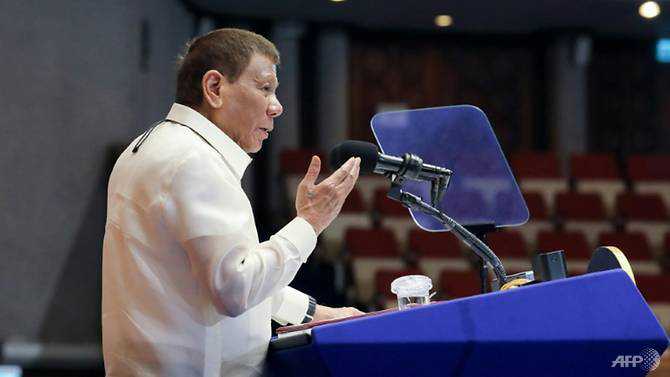Philippines' Duterte won't cooperate with ICC probe: Spokesman
15 June, 2021

Philippine President Rodrigo Duterte will "never cooperate" with an International Criminal Court probe in to the country's deadly drug war, his spokesman said on Tuesday (Jun 15), branding the process "legally erroneous".
Outgoing ICC chief prosecutor Fatou Bensouda on Monday asked judges at the world's only long lasting war crimes court to authorise a study into allegations that Philippine police unlawfully killed as much as tens of thousands of civilians between 2016 and 2019.
Duterte was elected in 2016 on a campaign promise to eliminate the country's drug problem, and he openly ordered police to kill drug suspects if their lives were in peril.
"The president won't cooperate until the end of his term on Jun 30, 2022," Harry Roque told reporters, repeating a previous assertion that the ICC does not have any jurisdiction in the Philippines since it pulled from the tribunal.
The Philippines left the ICC in 2019 after the court launched an initial examination in to the war on drugs. Bensouda said it might still investigate crimes committed while the country was an associate.
"The available information indicates that members of the Philippine National Police, and others acting in concert with them, have unlawfully killed between thousands of and tens of thousands of civilians" through the period under investigation, said Bensouda, in another of her last acts before stepping down this week.
But Roque rejected her findings and said it had been "an insult to all or any Filipinos" to advise the country's justice system had not been working.
"We will be in comparison to countries like Darfur, areas where there is no functioning government. It's not right," he said.
"If killings occurred, appropriate force and violence were observed."
The crackdown is Duterte's signature policy initiative and he defends it fiercely, especially from critics such as for example Western leaders and institutions which he says do not value the Philippines.
More than 6,000 people have already been killed in over 200,000 anti-drug procedures conducted since July 2016, according to official data.
Human rights groups estimate the quantity of dead could be many times higher.
Many suspects have already been put on "drug watch lists" by local officials and visited by police at their homes - a predicament which often leads to a deadly shooting that officers claim was self-defence.
Rights groups welcomed Bensouda's request, with Amnesty International describing the ICC investigation as a "landmark step".
Source:
TAG(s):
